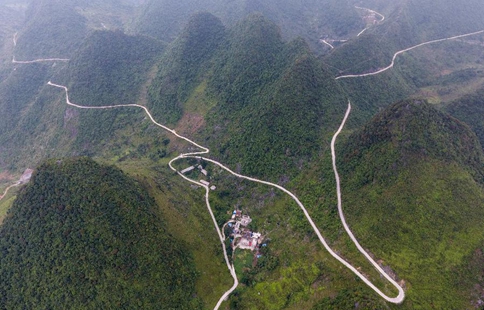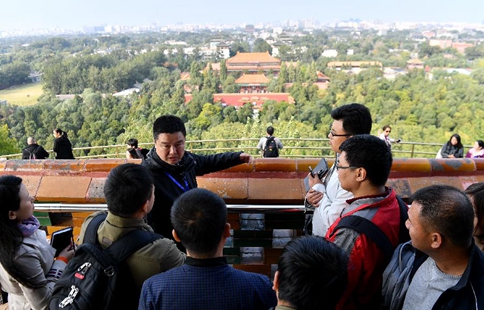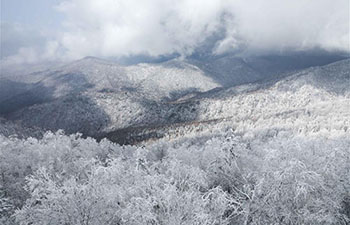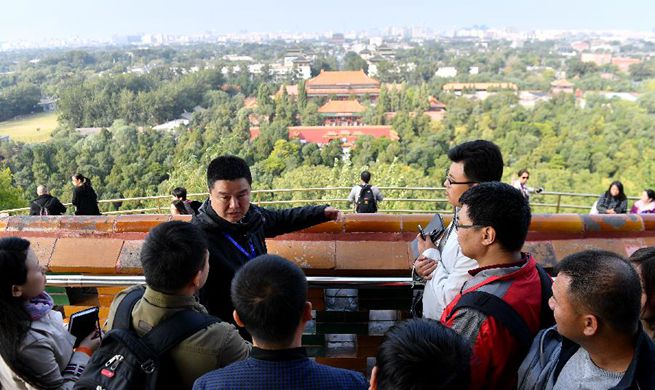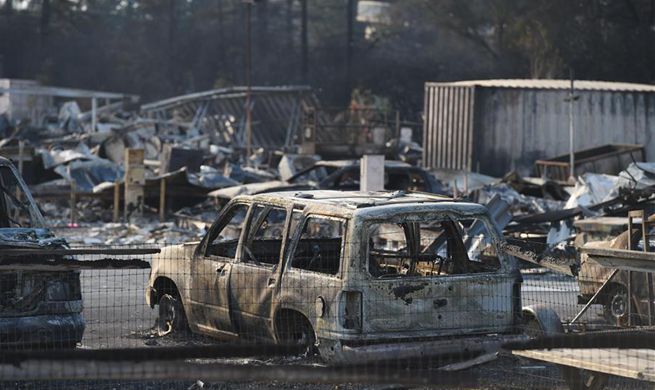TOKYO, Oct. 13 (Xinhua) -- Japanese Defense Minister Itsunori Onodera said Friday that he expects the U.S. military to ground all flights of its CH-53E transport helicopters in Okinawa for an indefinite period of time following the crash-landing of one of the choppers on Wednesday.
Onodera reiterated the fact that in a meeting a day earlier with Maj. Gen. Charles Chiarotti, deputy commander of U.S. Forces Japan, he was assured the flights of the transport helicopters would be suspended.
The defense minister's remarks, however, are at odds with the U.S. Marine Corps in Japan stating Thursday that the CH-53E choppers in Okinawa would be subject to a "96-hour operational pause."
"I asked Maj. Gen. Charles Chiarotti that the period of the pause would be until safety is ensured, and the deputy commander said that's right," Onodera told a press briefing on the matter Friday.
The latest in a string of accidents involving U.S. military aircraft has raised fears among officials and resident in Okinawa, Japan's southernmost prefecture, which hosts the bulk of U.S. military bases in Japan.
"One wrong move could have triggered a serious accident involving civilians. This incident adds to concerns of the people in the prefecture who live side by side with U.S. bases," Okinawa Governor Takeshi Onaga was quoted as saying in a statement to Onodera.
"They cannot help but feel strong doubts over the U.S. military's aircraft maintenance and safety measures," Onaga added.
Onaga, a staunch proponent of relocating U.S. military facilities outside of Okinawa, also demanded that the transport helicopters be grounded until the cause of the crash is found and effective preventative measures taken.
The latest incident involved a CH-53E transport helicopter catching fire in midair during a training drill on Wednesday and bursting into flames as it made an emergency landing near the U.S. military's Northern Training Area.
The training area is located just 300 meters away from a residential area.
The U.S. Naval Safety Center rated the accident as the most serious "Class A." It said that a fire broke out in the helicopter's engine, which forced it to make crash-landing.
The CH-53E helicopter belongs to the controversial Marine Corps Air Station Futenma in Japan's southernmost prefecture of Okinawa.
The base is central to a relocation spat between the local and central government.
Okinawan officials and residents want to see the base relocated outside the prefecture, whereas the central government maintains that relocating it to a coastal region within Okinawa remains the only solution.
As well as hosting the bulk of U.S. military forces, Okinawans have had to endure numerous accidents involving U.S. military aircraft, which has, along with crimes committed by U.S. military and affiliated personnel, led to anti-U.S. sentiment rising on the tiny sub-tropical island.
In August 2015, a UH-60 helicopter crashed near Uruma City during an exercise after taking off from the U.S. Kadena Air Base. Seven people, including two from Japan's Self-Defense Force (SDF), were injured.
Prior to that, in August 2013, an HH-60 helicopter from Kadena crashed in the U.S. Camp Hansen compound, killing one crew member.
In August 2004, local fears of U.S. military aircraft reached a fever pitch when A CH-53 helicopter plowed into the grounds of Okinawa International University, injuring three crew members and damaging the university buildings and nearby houses.
Following Prime Minister Shinzo Abe ordering the defense ministry and SDF to probe the cause of the latest U.S. military-linked accident and not rely only on U.S. investigations, four members of the SDF with expertise on helicopters visited the crash site to gather information.
The SDF helicopter experts were escorted by U.S. military personnel.
Investigations by Japanese authorities into the crash may be hampered, however, as U.S. military hardware and assets cannot be searched or seized without consent from the U.S. side, under the the Japan-U.S. status of forces agreement.





